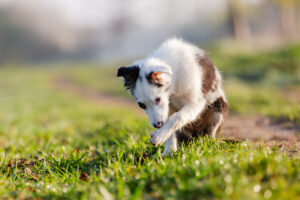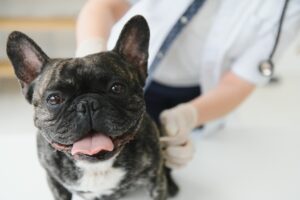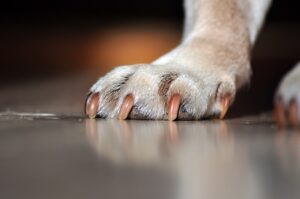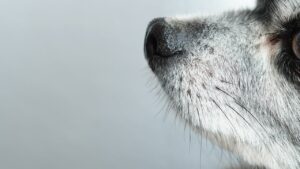If you’ve noticed your furry companion spending an excessive amount of time licking their paws, you might be wondering what’s causing this behavior. While occasional paw licking is normal for dogs, excessive licking can signal an underlying issue that requires attention. In this post, we’ll explore the possible reasons why your dog might be licking its paws frequently and what you can do to help.
Understanding Excessive Paw Licking:
Paw licking is a natural behavior for dogs, as it’s their way of grooming and soothing themselves. However, when this behavior becomes obsessive or compulsive, it may indicate an underlying problem. Here are some potential reasons why your dog might be licking its paws excessively:
1. Allergies: Just like humans, dogs can suffer from allergies to various environmental triggers such as pollen, grass, mold, or certain foods. Paw licking is a common symptom of allergic reactions in dogs, as they may experience itching and irritation in their paws.
2. Skin Irritation or Infection: Skin issues such as dermatitis, fungal infections, or bacterial infections can cause discomfort and itchiness, leading to excessive paw licking as a way to alleviate the irritation.
3. Pain or Discomfort: Dogs may lick their paws excessively if they’re experiencing pain or discomfort due to injuries, arthritis, or other underlying health conditions. Licking can provide temporary relief and may indicate the need for further investigation by a veterinarian.
4. Anxiety or Stress: Dogs may engage in excessive paw licking as a coping mechanism for anxiety or stress. This behavior can be triggered by changes in routine, separation from their owners, or other stressful events.
5. Parasites: External parasites such as fleas or ticks can cause irritation and itching, leading to paw licking as a response to the discomfort.
What Can I Do to Help My Dog?
If you notice your dog licking its paws excessively, it’s essential to address the underlying cause to prevent further discomfort and potential complications. Here are some steps you can take to help your furry friend:
1. Schedule a veterinary exam: A thorough examination by a veterinarian can help determine the underlying cause of the excessive paw licking and guide appropriate treatment.
2. Address allergies: If allergies are suspected, your veterinarian may recommend allergy testing or dietary changes to identify and eliminate triggers. Medications or allergy shots may also be prescribed to manage symptoms.
3. Treat skin issues: If your dog has a skin infection or irritation, your veterinarian may prescribe medicated shampoos, topical treatments, or oral medications to alleviate symptoms and promote healing.
4. Manage anxiety: If anxiety or stress is contributing to the excessive paw licking, behavioral modification techniques, pheromone diffusers, or medications may be recommended to help your dog feel more relaxed and secure.
5. Prevent parasites: Regular flea and tick prevention measures can help protect your dog from external parasites and reduce the likelihood of paw licking due to itching.
Conclusion:
Excessive paw licking in dogs can indicate a range of underlying issues, from allergies and skin problems to anxiety and pain. By understanding the potential causes and seeking veterinary guidance, you can help your furry companion find relief and improve their overall well-being. Remember, every dog is unique, so it’s essential to work with your veterinarian to develop a tailored treatment plan that addresses your dog’s specific needs.







